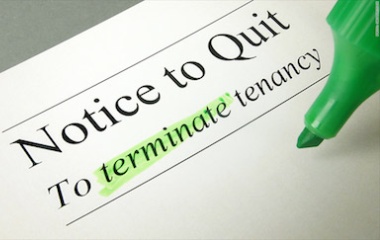
“Milveh lhotzah nitna”, money is loaned to be spent (Kiddushin 47a). When one loans money it is with the understanding that the borrower will use the money as they see fit. It would border on the absurd to suggest that one must return the exact same money that one borrowed. It is the value of the money, not the money itself, that we return.
Such is not the case when one loans, or even asks another to guard an object for him. One must return the exact same object to the owner in the same condition in which it was entrusted. To what extend one must do so is the subject of substantial Talmudic discussion.
For starters, such is not always possible. Especially in a time before refrigeration, spoilage was quite common. Mice often took advantage of food storehouses to have a nice feast. And even today foods often “settle” over time. The Mishna lays out what amounts of loss are reasonable.
“The one who deposits produce with his neighbor, he may deduct losses as follows: for wheat and rice, nine half-kabim to one kor (2.5%); for barley and millet, nine-kabim to one kor (5%); and for spelt and linseed, three se'im to one kor (10%). Everything is according to the measure, [and] everything is according to the [length] of time. Rabbi Yochanan ben Nuri said: What do the mice care? They eat [the same amount] whether from a lot or a little. Rather, he may deduct a decrease of only one kor” (Bava Metzia 40a).
It would seem that the Sages are concerned about spoilage and settling of food, and thus argue that the loss should be based on a percentage of the total. For Rav Yochanan ben Nuri, it is the mice that concern us, and there is a limit to what mice can eat[1].
But while mice have a limited appetite and food only settles so much, all foods have a “best before” date. And in Talmudic times it was often sooner rather than later.
“One who deposits fruit with his neighbor, even if they are rotting, [the guardian] must not touch them. Rabban Shimon ben Gamliel says: He should sell them under the supervision of the court because it is like one who restores a lost object to its owners” (Bava Metzia 38a).
One of the requirements of a shomer chinam, an unpaid guardian, is that he not make use of the object he is watching. His job is to guard it, not to use it. The Sages and Rabban Shimon ben Gamliel debate whether this also holds true when such would cause a monetary loss to the owner.
At first glance, the view of the Sages is hard to fathom. Why would anyone prefer to have his produce rot instead of having the shomer sell it, thereby recouping some of the losses? The Gemara quotes the view of Rav Kahana that “a person prefers one measure of his own, to nine measures of his friend.” Man, by his very nature, is (or should be) drawn to the results of his own efforts. It is better to earn 1/10th of the income but earn it ourselves, than have someone give us even ten times the money. As long as the produce has some value, the Sages rule that it is better to leave it rather than sell it[2].
I am sure many of you are thinking that you would much prefer the money; after all, you can always plant more fruit next year. So it is no surprise that there would be a debate as to whether we should take the notion that “a person prefers one measure of his than nine measures of his friend” literally or not.
Rav Yochanan greatly narrows the debate between the Sages and Rabbi Shimon ben Gamliel. He posits that the dispute is limited to cases of normal settling and spoilage as per the Mishna above; i.e., up to 10%. The Sages assert that one is willing to endure minor financial losses whereas Rabban Shimon ben Gamliel argues that even to prevent relatively small losses a shomer should sell the produce. But once the losses are severe and certainly if they approach 90% even the Sages agree that the shomer should sell them in order to recover at least some money.
It would seem that Rav Yochanan, who interprets the Sages as having a low threshold for monetary loss, disagrees with the interpretation of Rav Kahana. The latter values one’s pride in one’s own efforts despite the fact that a cost–benefit analysis indicates otherwise – by a large margin. And it may be so.
However, the Gemara raises the possibility that there is no disagreement. Even Rav Kahana agrees the shomer should sell the produce once the threshold of regular spoilage has passed. His assertion that “a person prefers one measure of his than nine measures of his friend” is guzma b’alma an exaggeration.
It may be true that people prefer the fruit of their own effort. They may even be willing to forego some money for this. But there are limits to what people will do to have their own “fruit”, and the limit is not very high. Times have changed little since the days of the Mishna.
[1] The Mishna in Pesachim teaches that after one has completed bedikat chametz one need not be concerned that mice will bring back chametz to the checked room-not because it was not a real concern, but because if so, “there is no end to the matter.” Those pesky mice were clearly an irritating fact of life.
[2] While the Talmud does not explicitly say so, it would appear we are talking about the fruit grown on one’s own land. It is hard to imagine that one would care so much about fruit one has purchased.



